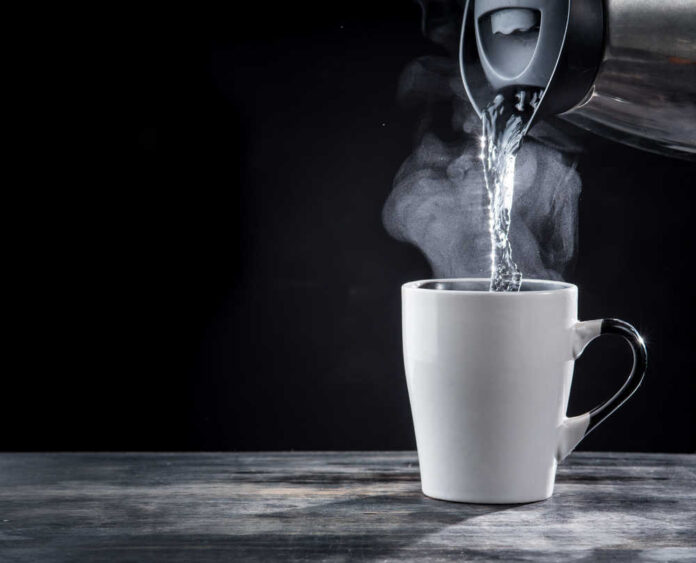
A cold glass of water can be wonderfully refreshing and rehydrating when you are hot and thirsty after a long day in the sun.
In that situation, a hot drink probably wouldn’t appeal to you very much (and likely won’t be as effective at quenching your thirst).
But there are some occasions in which you might be better off with a warm glass of water instead of a cold one.
Hot Drinks Can Help Clear Your Sinuses
If you’re all stuffed up with a cold or sinus congestion, a hot drink can help clear out your nasal passages. Warm beverages can provide immediate and sustained relief for conditions such as:
- runny nose
- cough
- sneezing
- sore throat
- chilliness
- tiredness
The steam from the drink may help loosen any mucus stuck in your nose, while the warmth can soothe your sore throat and comfort fever-related symptoms.
While you might prefer a cup of tea or coffee, a simple glass of heated water can also provide these sinus-clearing benefits. Add a splash of honey or lemon for added flavor and soothing power.
Warm Water May Help Digestion
In the Ayurvedic tradition of medicine, drinking warm water is thought to help stimulate the digestive system, improve blood circulation, and aid in the elimination of toxins from the body.
A cup of warm water first thing in the morning is thought to help cleanse the digestive tract, improve bowel movements, and reduce bloating.
However, there is only a limited amount of clinical evidence to support these claims. One study examined the effect of drinking warm water (98.6°F) on postoperative cholecystectomy (gallbladder removal) patients. The study confirmed that drinking warm water in the hours after surgery may provide a beneficial impact on intestinal movements during this important stage of postoperative care.
For everyday circumstances, though, there isn’t strong evidence that drinking warm water will significantly impact your digestion, but many people report feeling a relieving effect.
Increased Hydration Can Improve Your Mood
If you’re struggling with unhappy moods, excess stress, or disordered sleep, increasing your water intake may help a little bit. Dehydration or underhydration can make your symptoms worse, as well as provoke additional problems.
Sometimes, ice-cold water can be a little harder to drink at an adequate pace, so warm water may be a simple trick to help you reach your recommended daily intake. The added routine of heating up the water on the stovetop or in the microwave may also help you to slow down and take a moment for yourself.
Be careful not to drink your water too hot. Hot beverages can burn your lips and mouth and potentially contribute to heartburn and acid reflux if it damages your esophagus. After heating up your drink, let it cool down to a comfortably warm temperature before taking a sip.






















